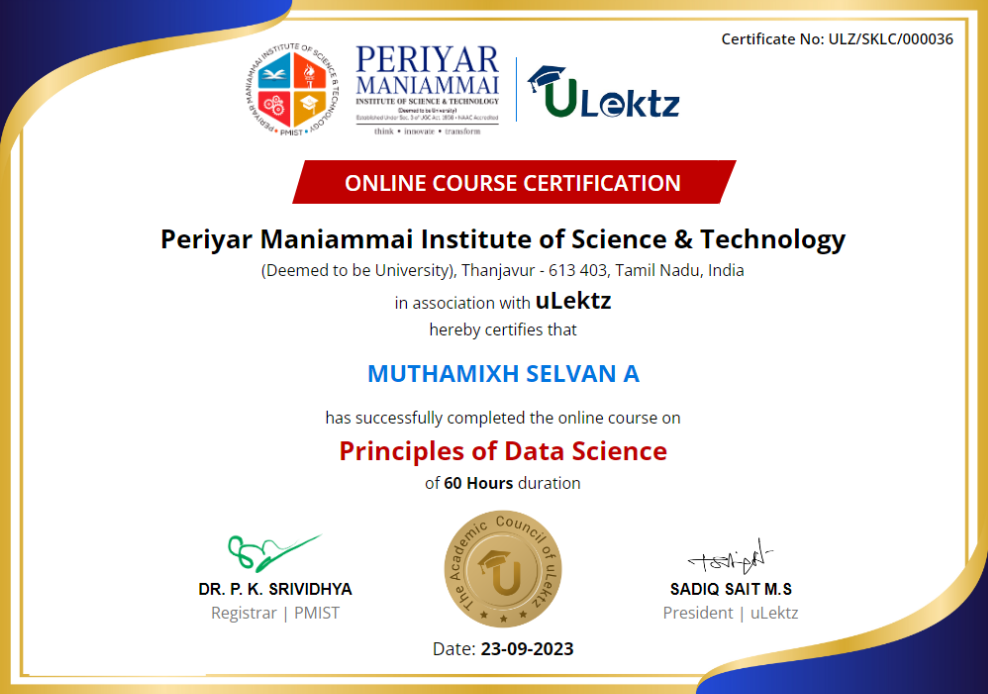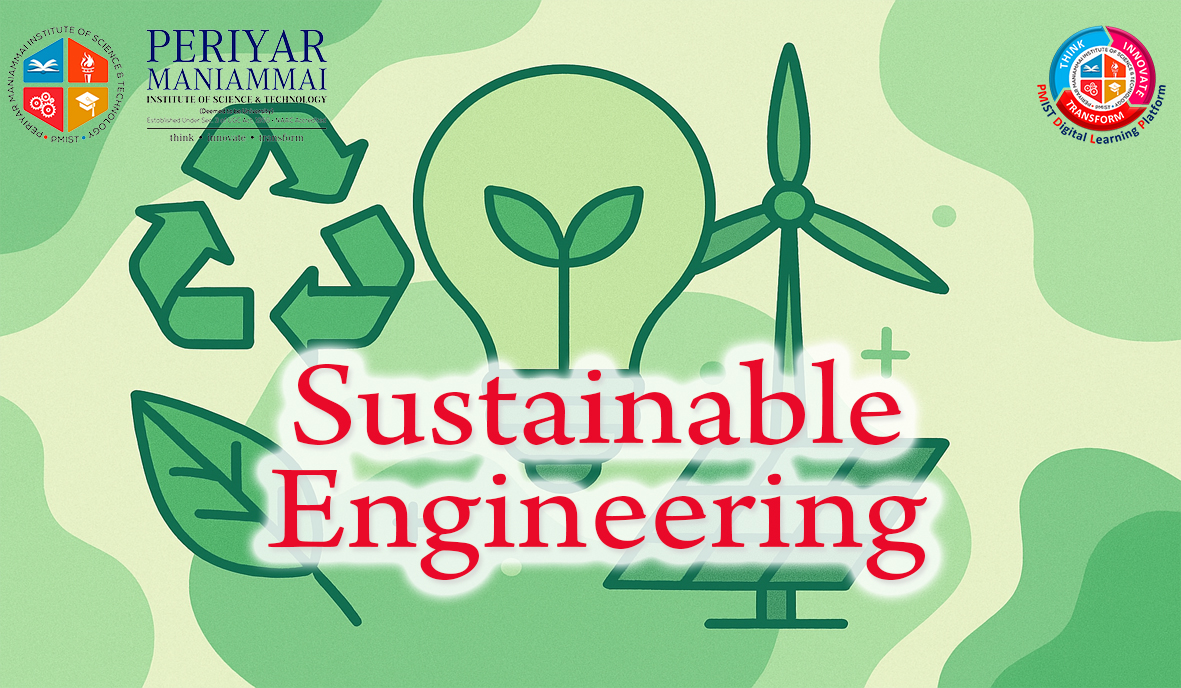

Note: Please check your Spam or Junk folder, in case you didn't receive the email with verification code.
Linear: Sequential Order
Module 1: Sustainable Development and Role of Engineers
.This module introduces the concept of sustainable development, emphasizing the critical need for achieving balance between economic growth, environmental protection, and social well-being. It highlights the role of engineers in advancing sustainable development through innovative, environmentally responsible, and socially inclusive practices. The module also covers core concepts such as sustainable engineering, system thinking, life cycle thinking, and the circular economy.
 Sustainable Development and Role of Engineers
Sustainable Development and Role of Engineers
 STE - Assessment - 1
20 Questions
STE - Assessment - 1
20 Questions
This module provides an in-depth understanding of sustainable engineering principles and their applications in the context of green and low-carbon economies. It explores eco-efficiency, the triple bottom line approach, and key frameworks that guide sustainability in engineering practices. Students will gain knowledge of various sustainability assessment tools, environmental management systems, and certification processes such as LEED and GRIHA. The module also covers environmental auditing, cleaner production assessment, environmental impact assessment, and strategic environmental planning, with case studies demonstrating real-world applications.
 Sustainable Engg - Module 2
Sustainable Engg - Module 2
 STE - Assessment - 2
20 Questions
STE - Assessment - 2
20 Questions
This module provides a comprehensive introduction to the principles and practices of Life Cycle Assessment (LCA), an essential methodology in environmental management and sustainable engineering. The module also explores the application of LCA software tools, evaluates the strengths and limitations of LCA, and emphasizes its role in sustainability decision-making. In addition, the module introduces the concept of environmental valuation and the use of market-based incentives (economic instruments) as tools to promote environmental sustainability. By connecting LCA with economic approaches, the module highlights integrated strategies for assessing and minimizing environmental impacts.
 Fundamentals of Life Cycle Assessment
Fundamentals of Life Cycle Assessment
 STE - Assessment - 3
20 Questions
STE - Assessment - 3
20 Questions
This module explores the critical intersection of sustainability and engineering design. It focuses on equipping students with a comprehensive understanding of sustainable engineering principles, tools, and methodologies required to address real-world environmental, economic, and social challenges through innovative design thinking. Topics covered include conventional versus sustainable design processes, "Design for Life" strategies, sustainability metrics, sustainable procurement, and the integration of emerging technologies such as AI and IoT into sustainable product and process design. Real-world case studies and industry examples enrich the learning experience by illustrating successful applications of sustainable design in practice.
 Sustainability and Engineering Design
Sustainability and Engineering Design
 STE - Assessment - 4
20 Questions
STE - Assessment - 4
20 Questions
This module explores the concept of Environmental, Social, and Governance (ESG), a framework used by businesses, investors, and institutions to assess the sustainability, ethical impact, and governance practices of organizations. The module covers the key components of ESG, the Global Reporting Initiative (GRI) standards for ESG reporting, and the importance of sustainability reporting, with a special focus on how these principles apply to educational institutions such as universities. Real-world practices and case studies are used to illustrate the integration of ESG in organizational strategy and reporting.
 Environment Social and Governance
Environment Social and Governance
 STE - Assessment - 5
20 Questions
STE - Assessment - 5
20 Questions
 Sustainable Engg - Final Assessment
50 Questions
Sustainable Engg - Final Assessment
50 Questions
The certificate issued for the Course will have
Only the e-certificate will be made available. No Hard copies. The certificates issued by Periyar Maniammai Institute of Science & Technology (PMIST). can be e-verifiable at www.ulektzskills.com/verify.



 90 hours Learning Content
90 hours Learning Content 100% online Courses
100% online Courses English Language
English Language Certifications
Certifications